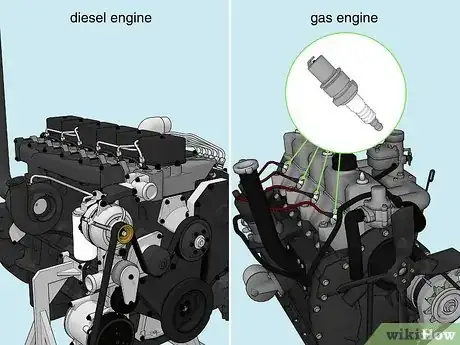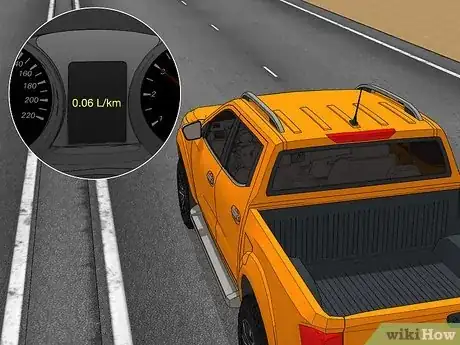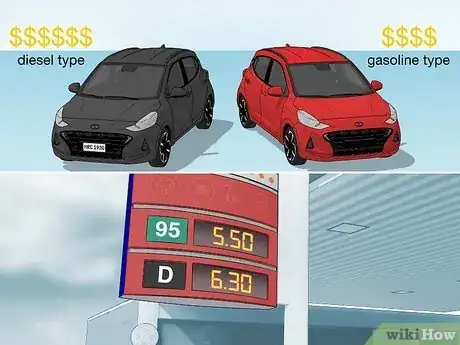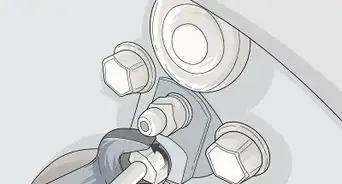This article was co-authored by Duston Maynes and by wikiHow staff writer, Devin McSween. Duston Maynes is an Automotive Repair Specialist at RepairSmith. Duston specializes in leading a team that handles a variety of automotive repairs including replacing spark plugs, front and rear brake pads, fuel pumps, car batteries, alternators, timing belts, and starter motors. Duston holds an Associate’s degree in Automotive/Diesel Technology from The Universal Technical Institute of Arizona and is a Certified Diagnostic Technician and Automobile Mechanics Technician through BMW STEP. RepairSmith received The 2020 Big Innovation Award by Business Intelligence Group and The Startup of the Year by the American Business Awards. RepairSmith was also included in Built in LA’s 50 Startups to Watch and The Business Intelligence Group’s 52 Names Leading the Way in Customer Service. RepairSmith offers in-home services to provide car owners convenient and complete auto repair everywhere.
There are 10 references cited in this article, which can be found at the bottom of the page.
Car shopping is so exciting: it's all about finding a make, model, and style that perfectly compliments you. But when it comes to choosing a diesel or gas engine, is there really much of a difference? You might think that the type of fuel you use is the only distinction, but there are actually a lot of differences in their power, energy efficiency, and longevity. Whether you’re in the market for a new car or are simply interested in how diesel and gas vehicles stack up, we’ll tell you all about how they differ. And to help you make the decision that's best for you, we’ll go over the benefits of owning each type.
Things You Should Know
- Diesel engines usually have greater fuel efficiency and longevity, but are more expensive than gas engines.
- Diesel vehicles are usually the best option if you pull heavy loads and drive long distances.
- Gas vehicles are often better to choose if you want a faster, high performing car and don’t drive long distances.
Steps
References
- ↑ https://www.themechanicdoctor.com/buying-a-new-truck-heres-why-you-should-go-diesel-infographic/
- ↑ https://www.worktruckonline.com/147984/pros-and-cons-of-gas-vs-diesel-in-class-3-4-trucks
- ↑ https://www.fueleconomy.gov/feg/di_diesels.shtml
- ↑ https://www.themechanicdoctor.com/buying-a-new-truck-heres-why-you-should-go-diesel-infographic/
- ↑ https://ww2.motorists.org/blog/diesel-pros-and-cons/
- ↑ https://www.carfax.com/blog/diesel-vs-gas
- ↑ https://www.eia.gov/dnav/pet/pet_pri_gnd_dcus_nus_w.htm
- ↑ https://www.themechanicdoctor.com/buying-a-new-truck-heres-why-you-should-go-diesel-infographic/
- ↑ https://www.popularmechanics.com/cars/trucks/a19090941/us-small-diesel-engines/
- ↑ https://www.fool.com/investing/general/2015/06/04/diesel-vs-gas-which-is-the-better-fuel-and-vehicle.aspx
- ↑ https://www.theglobeandmail.com/globe-drive/culture/commuting/need-a-short-haul-grocery-getter-dont-pick-diesel/article4099688/
- ↑ https://rentar.com/use-diesel-large-vehicles-rather-petrol/
- ↑ https://www.worktruckonline.com/147984/pros-and-cons-of-gas-vs-diesel-in-class-3-4-trucks
- ↑ https://www.themechanicdoctor.com/buying-a-new-truck-heres-why-you-should-go-diesel-infographic/
- ↑ https://www.theglobeandmail.com/globe-drive/culture/commuting/need-a-short-haul-grocery-getter-dont-pick-diesel/article4099688/

































































